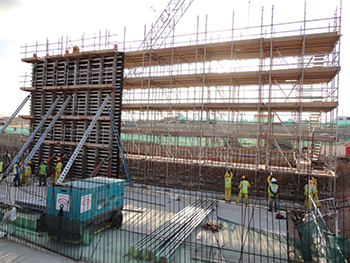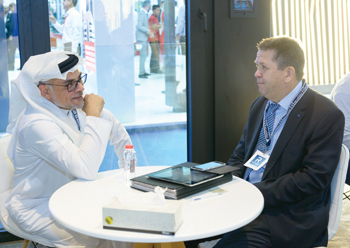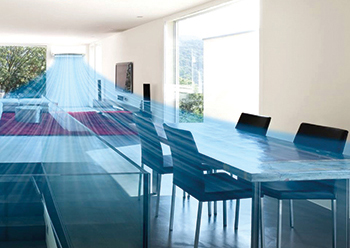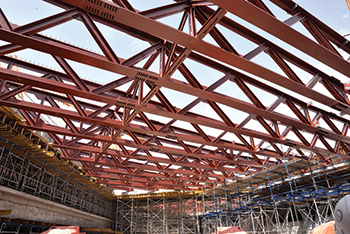
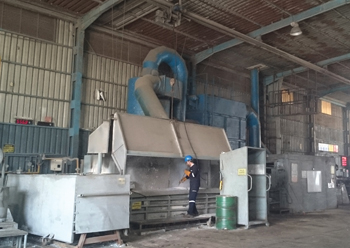 Berdan Civata operates on 33,000-sq-m premises in Tarsus.
Berdan Civata operates on 33,000-sq-m premises in Tarsus.
Berdan Civata, a specialist in the manufacture of steel fasteners, has seen sales grow tenfold since 2008. It has also received global recognition as a key supplier to prestigious mega-projects as well as leading global wind energy contractors, according to the Turkish company.
Since 2017, the company’s revenue has increased by more than 90 per cent while recording solid annual growth, according to a company spokesman.
Among some of its prestigious projects is Europe’s second longest suspension bridge across the Izmit Gulf. Berdan Civata was chosen by IHI of Japan to supply 362 sets of M110 x 10.100-mm Class 10.9 anchorbolts for the project.
“It was also recently awarded a contract to manufacture and supply 764 sets of M110 x 10.178-mm 10.9 class of anchorbolts for the world’s longest suspension bridge, the Canakkale 1915 bridge, over the Dardanelles Strait in the Canakkale province of Turkey,” he says.
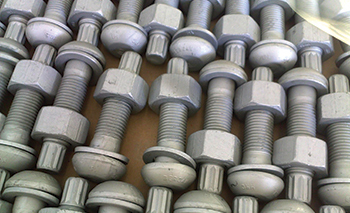 |
|
Berdan Civata offers a diverse range of fasteners. |
Canakkale 1915, located on the western end of the Marmara Sea, is expected to be the world’s longest suspension bridge once completed.
Berdan Civata was awarded the contract by a consortium of Daelim and SK Engineering & Construction (SK E&C), along with Turkish companies Limak Holding and Yapi Merkezi, to manufacture steel anchor bolts and relevant fastening components for the project.
Berdan Civata has been a reference manufacturer of many mega projects that include energy transmission lines, stadium projects, railways, petrochemical and steel structures. Some of these projects include the Cyprus Water Supply, where it supplied 6,500 hours of salt-spray tested special fasteners for water pipelines submerged 280 m extending from Turkey to North Cyprus in the Mediterranean Sea; foundation anchor and flange bolts for the Trans-Anatolia natural gas pipeline (Tanap) project stretching from Azerbaijan to Europe; and a range of anchor and construction fasteners for the Makkah-Madinah Haramain high-speed rail system.
This is in addition to supplying to wind energy projects of the world’s biggest wind turbine manufacturers. In fact, Berdan Civata ranks amongst the top 10 global manufacturers in its domain and is considered one of the most experienced and the only integrated company, the spokesman says. It is an approved supplier to Alstom, Nordex, Vestas, Siemens, Gamesa, Acciona, General Electric (GE) in Turkey for anchorcages (foundation bolts and load spreading plates), tower bolts, nacel bolts as well as studs for blades.
According to the spokesman, the company has the ability to quickly produce large volumes of fasteners ranging from M16 to M30 in diameter in two of its cold forming machines.
Berdan Civata, he says, has one of the largest-capacity hot forging nut machines for serial production of up to M33 mm in addition to manual hot forging nuts up to M72 mm.
The comany also enjoys some of the biggest production capacities of HV (German approach) and HR (British and French approach) bolting assemblies with CE certifications, including ISO EN 14399-1 for preloaded bolting assemblies and 15048-1 for non-preloaded bolting assemblies.
Additionally, Berdan Civata claims to be the only company in Turkey to own a torque device measuring the friction coefficient of EN 14399-4 bolts up to the M72 diameter, besides a 500-tonne tensile tester, says the spokesman.
The company is also considered to be the only one of its kind qualified to produce the tension-controlled bolts (TCB) according to EN 14399-10. It has both the capabilities and relevant certificates to produce the CE-approved non-preloaded and preloaded HV/HR bolting assemblies according to EN 14399-3/4/5/6 standards, and bolts especially M36 and higher diameters according to Dast 21.
Berdan Civata has its own heat treatment and surface treatment facilities. A separate plant located in close proximity is dedicated to zinc coating. It also has its own trivalent zinc electroplating line, a zinc lamella coating line using Magni technologies, and a recently introduced phosphating line.
The main volume, however, flows through Berdan Civata’s hot dip galvanising line, which apart from producing an unusually fine finish has been specifically designed to reduce the risk of hydrogen embrittlement failure.
“In order to eliminate the risk of hydrogen embrittlement, Berdan Civata has introduced special and patented processes. To ensure cleanliness while also ensuring no hydrogen is introduced during the coating process, no acids or chemical processes that might emit hydrogen are used,” the spokesman explains.
Meanwhile, in order to avoid the risk of microcracking, the galvanising temperature is kept in the range of 455 to 470 deg C for M27 and upper diameter 10.9 class of bolts and studs.
The standards are based on EN ISO 10683 for zinc flakes and EN ISO 10684 for hot-dip galvanising.
Cleaning processes at Berdan Civata is performed mechanically using a grit-blasting method developed by the company. This also ensures there is no damage to the threaded sections of the product, the spokesman says.
After cleaning, the parts are dipped in an alkaline solution and then into a flux solution to help accelerate the bonding of the galvanising coat, he adds. The parts are hot dipped in zinc and then centrifuged to remove excess coating before cooling and despatching to a drying oven.
“As a reputable manufacturer for mega projects worldwide, Berdan Civata is dedicated to offering reliable support at critical times through its well-trained technical staff and management,” the spokesman concludes.
Founded in Tarsus, Turkey, in 1970 with a team of five people on a 150-sq-m area, Berdan Cıvata now operates on 33,000-sq-m premises in the Tarsus Mersin Organised Industrial Zone (OIZ) with 295 employees.





















_0001.jpg)


.jpg)
















.jpg)








.jpg)



